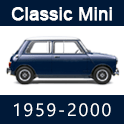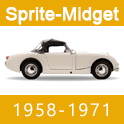Terminology -
FD - Final Drive/diff ratio
LSD - Limited Slip Differential
Drop gears - transfer gears (primary, idler, and input gears)
There’s a good selection of straight-cut final FDs available. Examine the FD table, and using information from 'Gearbox - Final dives, standard' and 'Gearbox - Formulae for car speed, etc.' you can assess which would best suit your usage. Bear in mind that they’re noisy, make sure you select one that’ll fit your diff unit, and also consider that using drop gears will allow fine-tuning of the ratio where necessary. See 'Gearbox - Up-rating drop gears' for more info.
STRAIGHT CUT FINAL DRIVE RATIOS AVAILABLE.
FITMENT AVAILABLE
|
NUMBER OF |
TEETH ON GEARS |
FITMENT AVAILABLE | |
| CROWN WHEEL | PINION | RATIO | (LSD is specific fitment) |
| 52 | 15 | 3.44 | Std and twin pin, NOT LSD |
| 64 | 17 | 3.76 | Std and twin pin, NOT LSD |
| 55 | 14 | 3.9 | Std and twin pin, NOT LSD |
| 53 | 13 | 4.08 | Std, twin pin, and LSD |
| 55 | 13 | 4.23 | Std, twin pin, and LSD |
| 56 | 13 | 4.31 | Std, twin pin, and LSD |
| 64 | 14 | 4.57* | Std and twin pin, NOT LSD |
| 56 | 12 | 4.67 | Std, twin pin, and LSD |
NOTE; All above are actually ‘semi-helical’ with the exception of ‘*’.
The standard diff unit’s componentry falls well short in the performance stakes. As an absolute minimum you should fit an up-rated diff-pin - whether this is because your racing regs don’t allow alternatives, or merely for the road - along with new planet-wheels and thrust washers. If at all possible, use the later diff-cage that has cutouts next to the planet-wheel seats that take the later 'locating tab'-type thrust washers. This massively reduces diff wear of all types by stopping the thrust washers spinning. In the old-style diff these used to wear away very quickly, further exacerbating the planet-wheel/diff-pin wear problems and substantial irrevocable damage to the diff-cage. It is entirely possible to modify an early-type diff-cage to use the later thrust washers, but really only practical if there's a later one to hand to take dimensions from, and the diff-cage isn't already completely goosed. The wear is obvious to the eye - the planet-wheel seat should be smooth and not at all recessed.
Unfortunately this doesn’t guarantee complete reliability - even in a road car. The planet-wheels have a seemingly very broad manufacturing tolerance not really suitable for spirited driving, irrespective of power output. To counter this problem, Mini Spares/Mania also supply a special 'bushed' planet-wheel/diff-pin kit that massively reduces these tolerance/wear problems by the fitment of bronze bushes into modified planet-wheels. The bushes are precision reamed to give a proper fit on the diff-pin, greatly reducing twisting of the planet-wheels in use. The bushes also improve lubricity/reduced friction. The kit includes the competition diff-pin and new thrust washers.
Twin cross-pin diffs are the only real solution to long-term reliability for an 'open' diff. As the title infers, the unit has two diff-pins. Consequently it also has four planet-wheels. These two factors combined with proper, exact machining during manufacture make them practically indestructible - assuming tightly controlled tolerances, material spec, and heat treatments are adhered to as is the case for the superlative 'Trannex' unit. An absolute must for any Mini with anything like a whiff of increased power output, or/and where spirited driving is envisaged. Not particularly cheap, but a sight cheaper than an exploded diff and the consequent damage it’ll inflict!!
The ultimate is an ‘LSD’. Its title says it all. It limits the amount of slip allowed before it engages, providing positive drive to enable progress! They are generally referred to by the mis-informed as ‘Salisbury’ diffs, purely because this was the name of the first and only one available for the Mini for some considerable time. There are others - Trannex, Jack Knight, Quaife, and even AP Racing. For further expansive information on how these work, and who's does what, see articles pre-fixed 'Gearbox - Limited Slip Diffs…'
Ancillary components
It's every-bit as important to up-rate the collection of components that combine with the main gears to make up a whole and reliable gearbox. Mini Spares have poured substantial resources in to researching what needs doing and developing suitable components to make you life easier, and your Mini happier.
Genuine Rover balk rings are quite satisfactory for road use, and limited weekend, short distance racing. Circuit racing soon eats them up. Main problem is the material and manufacturing spec. They’re made by a process called ‘sintering’ that essentially means metal powder is pressed and bonded then baked in extreme temperature. An unfortunate by-product is brittleness. Wear rate is OK, but they break when used in anger by those less-than-sympathetic to the cars mechanicals. When used in sports other than the like of sprints/hill-climbs, it’s necessary to replace these every couple of events - approximately 100 racing miles - dependent on mechanically sympathetic level of user! To wit there are special manganese-bronze replacements. These need replacing at least once a year as they still wear, BUT are far less prone to breakage - thus preserving gears/dog-teeth/selector forks for longer periods.
Standard or cheap replacement layshafts are simply not up to the punishment of protracted high rpm use. The extremely hard chromed finish of the needle roller bearings used soon eats into the cheap/low-spec/heat-treated/poorly surface-ground materials used. Again, good, high quality versions are available from Mini Spares/Mania at sensible prices for all gearbox types. Essentially they are manufactured using higher-grade materials, far closer tolerances, more exacting heat-treatments, and finer ground finish.
For those struggling to fit LSD units or Hardy-Spicer-type couplings to rod-change gearboxes, help is at hand! The problems are two-fold. The diff output shafts are larger in outside diameter than pot-joints, and there’s the selector detent plunger/spring to cater for. Specifically manufactured side plates are available from Mini Spares/Mania to sort both problems in one go. They are basically the original S side plate cast with the necessary detent lug on. Consequently this means the original S side plates are also available.
And last but not least - whatever you use your Mini for, ALWAYS fit a centre-oil pick-up pipe to maintain oil supply when cornering hard!
Part numbers:
C-BTA166 - Competition, hi-grade diff pin for standard diff
C-BTA167 - Bushed planet wheel kit
DAM6624 - Standard planet wheels - 2 needed
BTA101 - Diff output shaft thrust washers - 2 needed
2A7062 - Early, non-locating tab-type planet wheel thrust washers - 2 needed
DAM5071 - Later, locating tab-type planet wheel thrust washers - 2 needed
DAM6027 - Later, locating tab-type planet wheel thrust washer diff cage
RPS1418 - Diff-pin locating roll-pin
C-AJJ3385 - Original and best Trannex cross-pin diff unit
C-22A1731 - Hi-grade competition spec layshaft for 3-syncro gearboxes
C-22A1738 - Hi-grade competition spec layshaft for 4-syncro pre-A+ gearboxes
C-22A1739 - Hi-grade competition spec layshaft for 4-syncro A+ gearboxes
C-22A1740 - Competition manganese-bronze balk rings
22G419 - S-type diff side plates
22G420 - Rod-change diff side plates to take Hardy-Spicer-type output shafts
AHU1082 - Output shaft seal for 22G419 and 22G420 side plates
C-AHT54 - Centre-oil pick-up pipe








